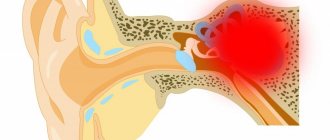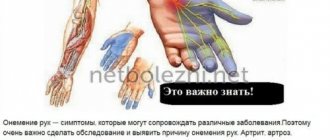Features of application
Use during pregnancy or breastfeeding
Pregnancy. There is insufficient data regarding the use of betahistine in pregnant women.
Results from animal studies are insufficient to assess the effect on pregnancy, embryo/fetal development, childbirth and postnatal development. The potential risk to humans is unknown. Betahistine should not be used during pregnancy unless absolutely necessary.
Breastfeeding period. It is unknown whether betahistine passes into breast milk. Animal studies on the absorption of betahistine into milk have not been conducted. The benefit of using the drug for the mother should be weighed against the benefits of breastfeeding and the potential risk to the child.
Children
Due to insufficient data on the safety and effectiveness of betahistine, the drug is not recommended for use in children (under 18 years of age).
The ability to influence the reaction rate when driving vehicles or other mechanisms
Betahistine is indicated for the treatment of Meniere's syndrome, which is characterized by a triad of main symptoms: dizziness, hearing loss, tinnitus, as well as for the symptomatic treatment of vestibular vertigo. Both conditions can negatively affect the ability to drive and use machinery. According to clinical studies examining the effect on the ability to drive a car and operate other mechanisms, betahistine had no or negligible effect on this ability.
Pharmacological properties of the drug Vestibo
betahistine affects predominantly the H1 and H3 receptors of the inner ear and vestibular nuclei of the central nervous system. As a direct agonist of H1 receptors in the vessels of the inner ear, as well as through an indirect effect on H3 receptors, betahistine improves microcirculation in the stria vascularis, normalizes endolymph pressure in the labyrinth and cochlea. Betahistine stimulates blood flow into the basilar arteries. As an inhibitor of H3 receptors in the vestibular nerve nuclei, betahistine exhibits a clear central effect at the level of the brain stem. It has a dose-dependent inhibitory effect on the generation of peak potentials in neurons of the lateral and medial vestibular nuclei. Betahistine reduces the frequency and intensity of dizziness, reduces tinnitus, and improves hearing when it decreases associated with vestibular disorders. Betahistine is completely absorbed when administered orally. The maximum concentration in blood plasma is achieved 1 hour after administration. Plasma concentrations remain very low, and the pharmacokinetic assessment of betahistine is based on plasma concentrations of only one known metabolite, 2-pyridylacetic acid, which is eliminated in urine. There are no data regarding first-pass metabolism and biliary excretion. In very small quantities it binds to blood plasma proteins. Approximately 80–90% of the applied dose is excreted in the urine.
Directions for use and doses
The daily dose for adults is 24-48 mg, evenly distributed throughout the day.
The dose should be selected individually, depending on the effect. A reduction in symptoms is sometimes observed only after two to three weeks of treatment. The best results are sometimes achieved when taking the drug for several months. There is evidence that treatment early in the disease prevents progression and/or hearing loss in later stages.
Meniere's disease: rare, but accurate
Of course, suspecting and diagnosing any disease is the prerogative of a specialist.
Meniere's disease is considered quite rare. In different countries, according to statistics, it affects from 20 to 200 people per 100,000 population. Women are almost twice as likely as men. The average age of patients is 40 years, and it almost never occurs in children.
But for whom does this make it easier if you are faced with the symptoms described above? In addition to Meniere's disease, they can signal other unhealthy and downright dangerous conditions, for example:
- benign positional paroxysmal vertigo;
- vestibular migraine;
- vestibular neuronitis;
- bilateral vestibulopathy;
- functional dizziness;
- stroke;
- brain tumors.
Therefore, if there are obvious disturbing symptoms, without delay, you need to make an appointment at the clinic with a therapist, ENT specialist, or directly at a specialized center. Establishing a diagnosis is not difficult for a specialist, but only after a set of diagnostic examinations.
Overdose
There are several known cases of drug overdose. Some patients experienced mild to moderate symptoms (nausea, drowsiness, abdominal pain) after taking the drug in doses up to 640 mg. More serious complications (convulsions, cardiopulmonary complications) have been observed with intentional use of increased doses of betahistine, especially in combination with overdose of other drugs.
Treatment
Treatment of overdose should include standard supportive measures.
Contraindications
The drug should not be taken in the following cases:
- high sensitivity to the components of the product;
- bronchial asthma , manifestation of bronchospasms;
- pheochromocytoma;
- exacerbation of gastric and duodenal ulcers ;
- first trimester of pregnancy;
- The medicine is prescribed with caution to children, people suffering from peptic ulcers, hypotension, as well as during pregnancy and breastfeeding.
Interaction with other drugs and other types of interactions
In vivo studies aimed at studying interactions with other drugs have not been conducted. Given these in vitro studies, inhibition of cytochrome P450 enzyme activity in vivo is not expected.
Data obtained in vitro indicate inhibition of betahistine metabolism by drugs that inhibit monoamine oxidase (MAO) activity, including MAO subtype B (for example, selegiline). Caution is recommended when using betahistine and MAO inhibitors (including selective MAO subtype B) simultaneously.
Because betahistine is a histamine analog, interaction between betahistine and antihistamines could theoretically affect the effectiveness of one of these drugs.
Analogues of Vestibo
Level 4 ATX code matches:
Betagis
Stugeron
Betaserk
Betaver
Westinorm
Westicap
Betagistine
Tagista
Cinnarizine
Analogues of Vestibo are drugs with a similar effect on the patient’s body. These drugs are Vesticap , Asniton , Betaserc , Betaver , Betacentrin , Mikrozer , Vazoserc , Denoise , Betagistin , Tagista . The price of analogues in some cases is lower than the cost of Vestibo; however, there are a number of more expensive drugs.
Note!
Description of the drug Vestibo table. 16mg No. 30 on this page is a simplified author’s version of the apteka911 website, created on the basis of the instructions for use.
Before purchasing or using the drug, you should consult your doctor and read the manufacturer's original instructions (attached to each package of the drug). Information about the drug is provided for informational purposes only and should not be used as a guide to self-medication. Only a doctor can decide to prescribe the drug, as well as determine the dose and methods of its use.
During pregnancy and lactation
To date, there is no reliable information about how the drug affects the developing fetus. Vestibo should absolutely not be used for treatment in the first weeks of pregnancy, as well as during organogenesis. During the second and third stages of pregnancy, the medicine can only be used as prescribed by a doctor after he has carefully assessed the potential benefits and harms of such therapy. During treatment, it is important to carefully monitor blood pressure readings. During breastfeeding, you should take the drug only after a temporary cessation of lactation. After completion of such treatment, the feeding process can be restored 3-5 days after the last dose of Vestibo.
Vestibo price, where to buy
The cost of tablets in a dosage of 8 mg is approximately 140 rubles per pack of 30 pieces. 16 mg tablets can be purchased at a price of 200 to 220 rubles for 30 pieces. The price of Vestibo 24 mg is on average 300 rubles per pack of 30 pcs.
- Online pharmacies in RussiaRussia
- Online pharmacies in UkraineUkraine
- Online pharmacies in KazakhstanKazakhstan
ZdravCity
- Vestibo tablets 24 mg 30 pcs. Catalent Germany Schorndorf GmbH/Balkanpharma-Dupnitsa AD
302 rub. order - Vestibo tablets 16 mg 30 pcs. Catalent Germany Schorndorf GmbH/Balkanpharma-Dupnitsa AD
RUB 224 order
Pharmacy Dialogue
- Vestibo (tab. 16 mg No. 30) Catalent Germany
RUB 247 order
- Vestibo (tab. 24 mg No. 30) Catalent Germany
RUB 306 order
show more
Pharmacy24
- Vestibo 8 mg N30 tablets Balkanfarma-Dupnitsya AD, Bulgaria/Katalent Germani Schorndorf GmbH, Germany
115 UAH.order - Vestibo 24 mg N20 tablets Catalent Germani Schorndorf GmbH, Germany
157 UAH order
- Vestibo 24 mg No. 60 tablets Catalent Germani Schorndorf GmbH, Germany
380 UAH. order
- Vestibo 16 mg No. 30 tablets Catalent Germani Schorndorf GmbH, Germany
165 UAH order
- Vestibo 8 mg No. 30 tablets Catalent Germani Schorndorf GmbH, Germany
110 UAH order
PaniPharmacy
- Vestibo tablets Vestibo tablets 16 mg No. 30 Germany, Catalent Germany
180 UAH order
- Vestibo tablets Vestibo tablets 24 mg No. 60 Germany, Catalent Germany
401 UAH order
- Vestibo tablets Vestibo tablets 8 mg No. 30 Germany, Catalent Germany
92 UAH order
- Vestibo tablets Vestibo tablets 24 mg No. 20 Germany, Catalent Germany
192 UAH order
show more











